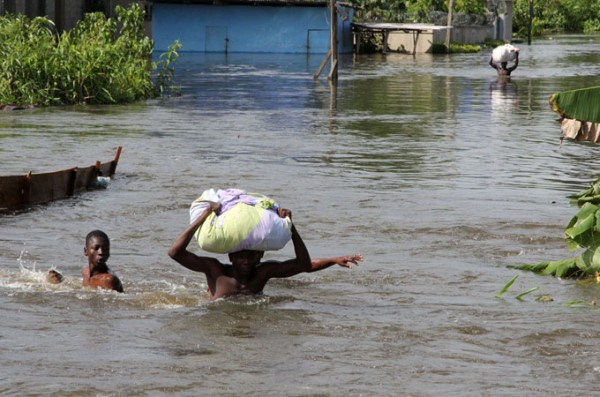The Bayelsa State Government has called on the federal government to take the reins of flood mitigation and control in states that are billed to suffer this year’s flooding as predicted by the Nigeria Hydrological Services Agency.
The call was made by state’s deputy governor, Lawrence Ewhrudjakpo, when a joint delegation from the International Organisation for Migration, United States Agency for International Development, and the National Emergency Management Agency paid him a visit at the Government House in Yenagoa.
In a statement issued on Tuesday by his media assistant, Mr. Doubara Atasi, the deputy governor expressed worry that the Federal Government and its agencies were unconcerned about the situation of the people living in flood-prone states.
Describing the Federal Government’s lackadaisical approach as alarming, Ewhrudjakpo noted that the country did not seem to have learned any lessons from the devastating floods that struck many communities in 2012 and 2022.
The deputy governor who slammed the FG for only being adept at issuing flood alerts, claimed that depending constantly on foreign aid from international organisations was not only demeaning but also anti-development.
He urged all pertinent parties to offer sustainable homegrown solutions to the flooding issue, which was quickly taking on a perennial dimension.
“The response from the Federal Government as far as we are concerned has not risen to the level that will convince us that they took what happened in Bayelsa State seriously.
“We are aware that immediately after the flood, about N800bn was requested from the National Assembly for emergency maintenance of roads, infrastructure and other facilities that were badly affected.
“Until now, the Port Harcourt to Warri section of the East West road, which I traveled through recently, is still very bad and the same Federal Government, as usual, is only predicting that this year’s flood would be worst than last year.
“We are not persuaded at all by the reaction of the Federal Government, and I am directing this to NEMA; we do not think that your fire brigade approach has changed anything.
“We must make concerted effort. The President gave ninety days ultimatum to the Federal Ministry of Water Resources to come out with plans to see how we can mitigate and avoid a repeat of what happened in 2012. But as far as I know, that issue is still in the pipeline.”




